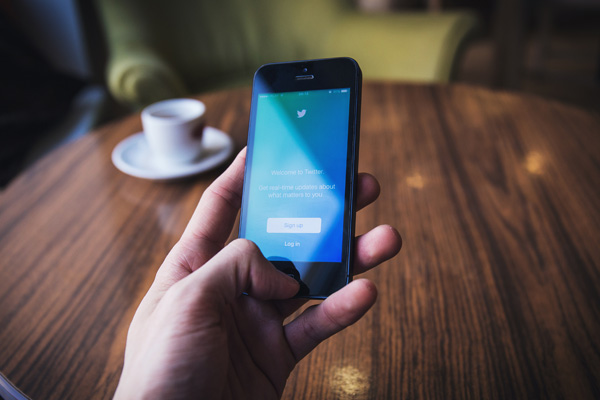Alleged CEO assassin praised as a hero on social media

[A photo representing a user on a social media platform. Photo Credit to Freestocks.org]
Luigi Maglione, the alleged killer of UnitedHealthcare CEO Brian Thompson, has widely been painted in a positive light among the public.
Though arrested on the 19th of December, many online have voiced their approval of Maglione’s actions.
A surprising fan community has spawned from this event, as users online create posts focusing on Maglione’s attractiveness.
While these posts are partly satirical in nature, the general positive attitude towards the alleged shooter appears to reflect genuine public sentiment.
This phenomenon recently reached beyond internet circles to mainstream media when, on SNL’s “Weekend Update”, host Colin Jost barely managed to mention Maglione’s name before the audience cheered, according to reports from the Daily Wire.
The reaction caused a major backlash, with critics like NYPD Commissioner Jessica Tisch stating firmly, “We don’t celebrate murders and we don’t lionize the killing of anyone.”
This controversy on Saturday Night Live (SNL) only highlights the deeper rift between mainstream media coverage and social media sentiment regarding the shooting.
In traditional media outlets, nearly unanimously regardless of political alignment, coverage has maintained the standard narrative of Maglione as a criminal who tragically ended the life of CEO Brian Thompson.
However, on social media, especially on the platform X, support for Maglione has been overwhelming.
The BBC reported that since Maglione’s arrest, variations of "#FreeLuigi" have been posted on X over 50,000 times, likely getting tens of millions of impressions.
Criticism has been levied towards both mainstream media coverage and social media supporters.
The Guardian proposed racial bias playing a role in Maglione’s public perception, claiming that “the “search” for what might have motivated him to allegedly shoot Thompson is based on “assumptions of plausibility” and who is capable of committing crime – a racialized concept.
Meanwhile, anonymous users and influencers online have openly condemned mainstream media for being heavily influenced by wealthy individuals in similar social status as the assassinated UnitedHealthcare CEO, characterizing this as a clear class conflict.
This debate was incited further when an NBC article titled “'Extremely ironic': Suspect in UnitedHealthcare CEO slaying played video game killer, friend recalls” misleadingly portrayed the game “Among Us.”
Forbes criticized the NBC article, stating that “any implication that video games were involved as a motivator is as ridiculous as it always is.”
Such reporting, perceived as overreaching in its attempts to paint a negative narrative about Maglione, has only served to widen the divide between mainstream media and popular opinion.
It is still unclear how, if at all, the court of public opinion will influence the legitimate court of law, particularly as the young defendant pleaded not guilty to state murder charges in the United Healthcare CEO’s death.
During Maglione’s court appearance, demonstrator Natalie Monarre told Time Magazine, “As extreme as it was, it jolted the conversation that we need to deal with this issue. Enough is enough, people are fed up.”

- Joonpyo Kim / Grade 11
- Haven Christian School

![THE HERALD STUDENT REPORTERS [US]](/assets/images/logo_student_us.png)
![THE HERALD STUDENT REPORTERS [Canada]](/assets/images/logo_student_ca.png)
